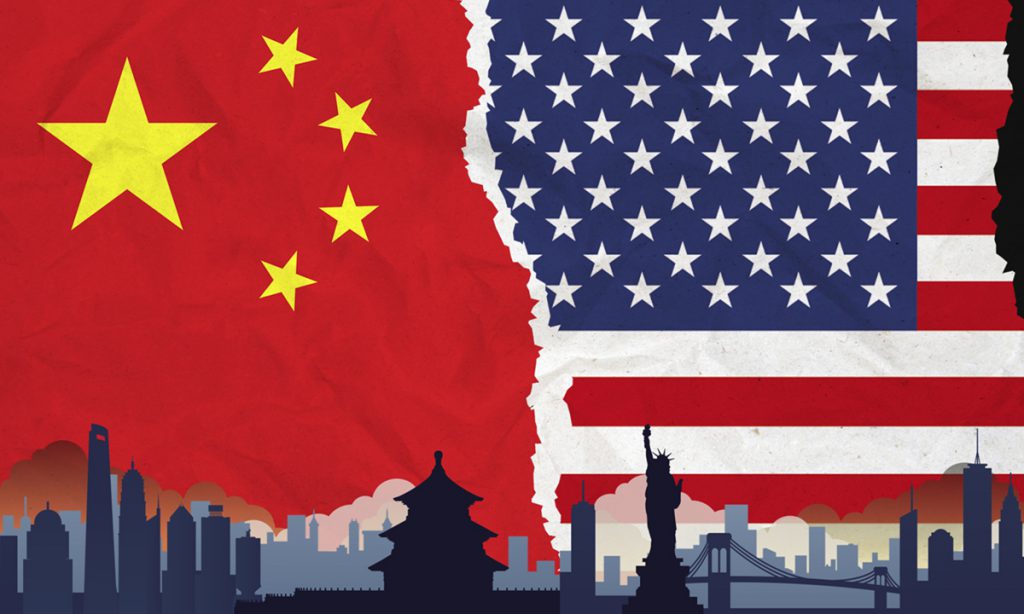China Drops 125% Tariff Bomb—Then Grants U.S. Tech & Pharma a Surprise Pass
In a move that reeks of geopolitical chess—or maybe just good old-fashioned supply chain panic—China quietly exempted critical U.S. goods from its infamous 125% tariff wall. The carve-out? Exactly the sectors Wall Street loves to overhype: semiconductors, lithium batteries, and enough pharmaceuticals to keep Pfizer’s stock afloat.
Key exemptions:
- AI chips (because even trade wars can’t kill the hype cycle)
- EV battery components (Tesla’s Shanghai factory breathes a sigh of relief)
- ‘Essential’ meds (read: anything that keeps hedge fund managers alive past 60)
The fine print reveals Beijing’s play: choke competitors but keep the tech pipeline flowing. Meanwhile, U.S. lobbyists are already spinning this as a ‘win’—proof that even in a trade war, money talks louder than ideology. Cynics might call it capitalism with Chinese characteristics.

 China secretly creates list of US-made goods exempt from 125% tariffs, Reuters reports.
— Watcher.Guru (@WatcherGuru) April 30, 2025
China secretly creates list of US-made goods exempt from 125% tariffs, Reuters reports.
— Watcher.Guru (@WatcherGuru) April 30, 2025
How China’s 125% Tariff Exemptions Affect U.S. Trade and Businesses

Right now, Chinese authorities are privately reaching out to companies about these exemptions rather than making any broad public announcements about their tariff strategy. This approach essentially helps China manage its domestic economic needs without appearing to back down in the ongoing and increasingly complex China-U.S. trade war.
What Products Have Been Exempted
Currently, the China 125% tariff exemption list includes select pharmaceuticals, microchips, and also aircraft engines. These particular items represent areas where Chinese industries still heavily depend on U.S. technologies and components. Just recently, ethane was additionally added to this growing exemption list after processors specifically requested relief, as the United States is actually China’s only supplier of this important chemical used in manufacturing.
A source from a pharmaceutical company that the Shanghai Pudong government contacted said:
The “Whitelist” Approach
Sources claim China conducts its tariff exemptions for U.S. products via administration through the “whitelist” approach. The Chinese officials contact specific companies to provide possible relief programs regarding their American product imports. Businesses are currently being basically directed to independently request information about whether their imported products might receive exemptions.
The discreet exemption procedure provides Chinese officials with a way to uphold their official stance of enduring the trade war until the U.S. removes its 145% tariffs but enables them to handle essential supply chain requirements that require immediate remedy.
Assessing Trade War Impact
The authorities are utilizing industry surveys to monitor business sector vulnerability from the U.S.-China tariff dispute in addition to producing the China 125% tariff exemption registry. Officials in multiple regions across China are gathering data and information to better evaluate the economic costs of continuing this trade dispute.
In eastern China, government representatives requested a foreign business lobby group to:
Potential for Resolution
Regarding the ongoing situation, U.S. President Donald Trump said:
This statement, combined with China’s practical steps to exempt certain U.S.-made goods from the high tariffs, suggests both sides may actually be seeking ways to reduce tensions while still saving face politically.
U.S.-China trade companies use these exclusions to find temporary relief from the difficult trading conditions currently affecting them. Despite the visible trade confrontation, China demonstrates its continued product dependency for select American goods with its targeted tariff exemptions.
The government of China made a realistic economic adjustment through its 125% tariff exemption list while continuing to display confrontational public posturing toward the United States. The ongoing situation demands businesses to keep in touch with Chinese authorities by establishing direct communication to learn about possible exclusions for crucial U.S.-made imports they require for their business operations.

